Bristol couple helping Covid vaccine roll-out in Uganda
- Published
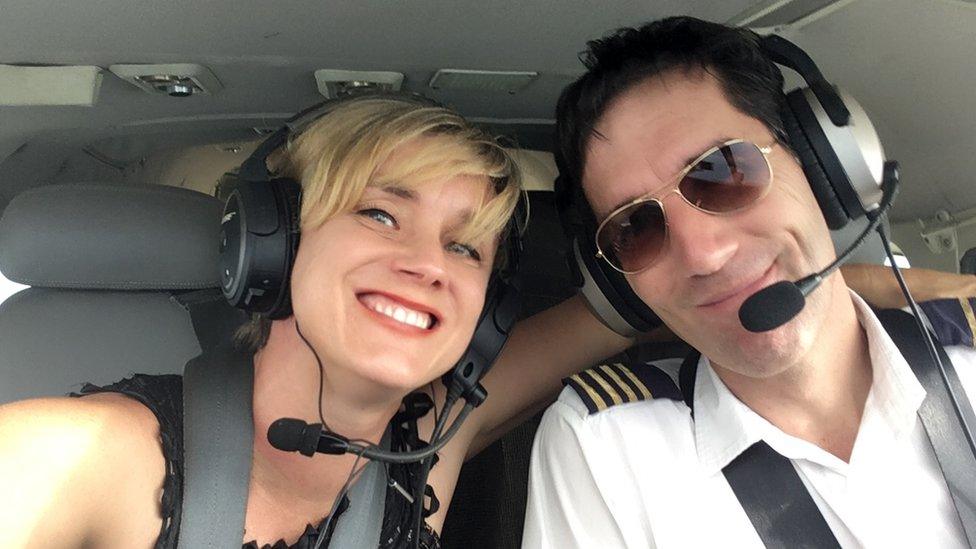
Jill and Greg Vine have spent 15 years working with the world's largest humanitarian aid air operation
A couple helping to provide aid to the hardest to reach areas of Uganda in support of a Covid vaccination effort have praised the work of charities who are "finding a way through".
Jill and Greg Vine, from Bristol, have been working with humanitarian aid air operation, Mission Aviation Fellowship.
Their work has included flying relief organisations, ministers and even refrigerators to remote communities.
Mrs Vine said: "It's been an amazing endeavour."
Mr Vine is a pilot for Mission Aviation Fellowship (MAF), carrying passengers, food and aid from hundreds of relief organisations, such as the United Nations Children's Fund (UNICEF), to areas in Uganda, as well as South Sudan and the Democratic Republic of Congo.
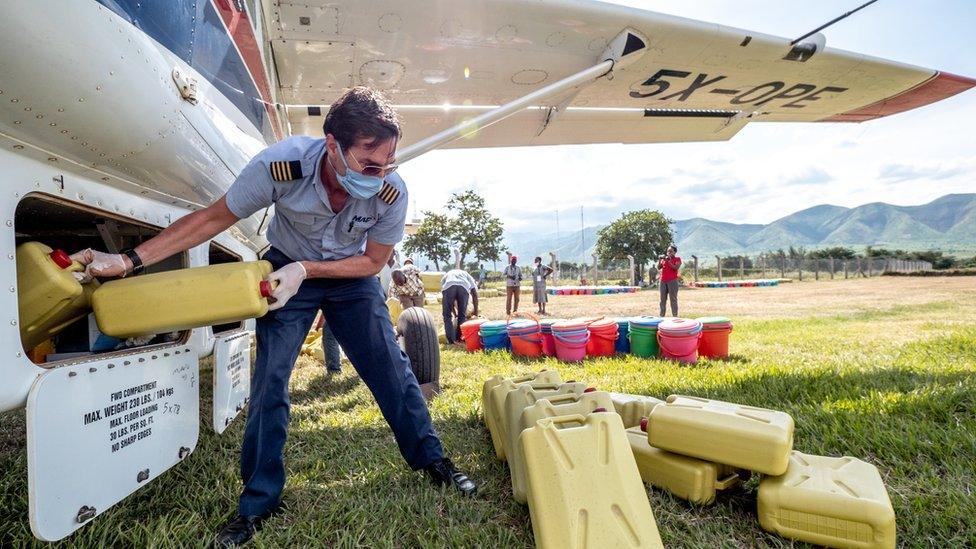
Greg Vine flies both passengers and cargo to some of the hardest to reach areas in the region
Mr Vine and his wife have spent 15 years working with the organisation and have been involved in a number of disaster relief efforts.
"I always wanted to be a pilot but I needed something more than just that," Mr Vine said.
"MAF marries the excitement of flying with being able to help people."
Mrs Vine, a communications officer, says working within coronavirus restrictions has been a big challenge but seeing NGOs working collaboratively has been inspiring.
She said Uganda was one of the first countries to impose a "crippling lockdown".
And while it saved the country from mass deaths seen in other countries, Mrs Vine said it brought about a number of other problems.
'Bigger killers'
"Uganda hasn't been too bad in terms of [Covid] cases... the Ministry of Health has done admirably," Mrs Vine said.
"The more critical problem has been lockdown. Suddenly people had no livelihoods, they didn't have any safety nets, no furlough scheme, so people were going hungry.
"You have a lot of people who have Aids who can't access their [antiretroviral drugs] ARVs... and there are much bigger killers [than Covid], including hunger, typhoid, malaria and cholera."
When lockdown was imposed, the charity's flight schedule was forced to slow down and many of their relief partners were unable to get into the country.
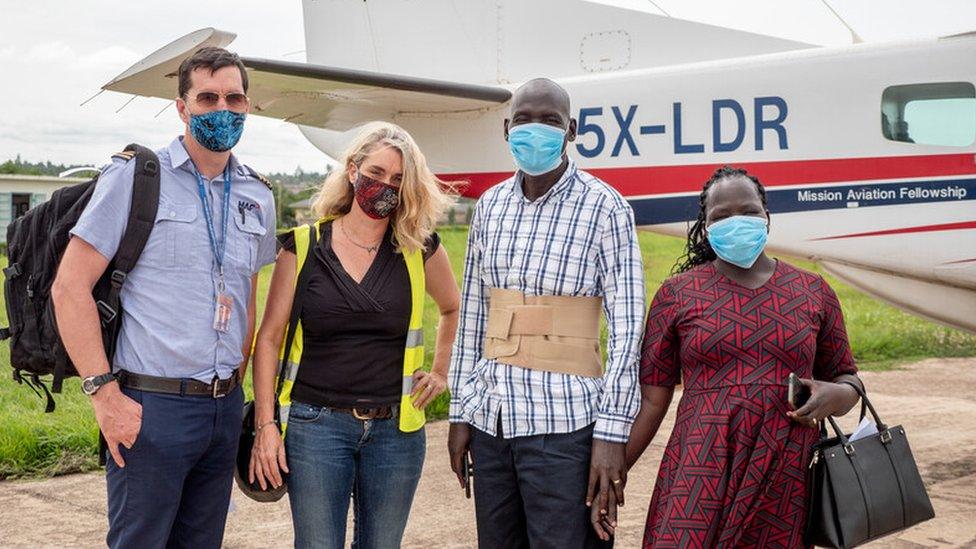
As well as helping with the vaccination effort Greg and Jill Vine have flown medical patients recovering from surgery
But when the vaccine roll-out started, MAF was called upon to fly NGOs to isolated communities.
"We're getting those aid workers who are helping with the roll-out to where they need to go," Mrs Vine said.
"We haven't flown the vaccine itself, as Astra Zeneca is taken by road, but we have flown refrigerators to the Congo to help with vaccination there.
"MAF have an emergency team that meets once a week to talk about ways they can solve any problems, they are remarkable really, whenever there is a problem they will just find a way through."
As well as her work with MAF, Mrs Vine has been helping to get food to those in need.
"We devised a way that we could work within the guidelines, because we weren't allowed to gather people to distribute food, to feed 5,000 people with more than a month's worth of food to carry them through the crisis," she said.
"We've been able to feed 15,000 people to date."
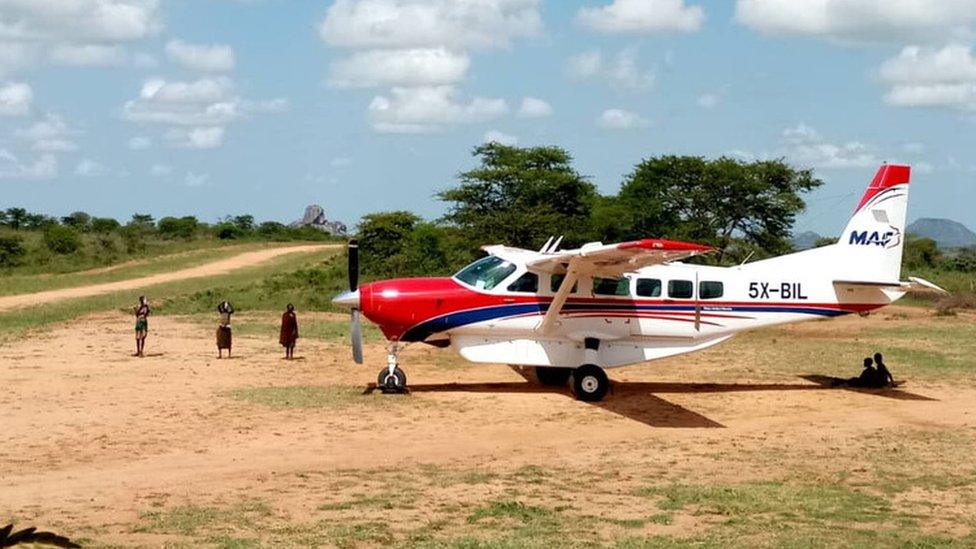
MAF flies a fleet of 123 light aircraft to remote communities across Africa, South America and Asia
Mr and Mrs Vine are currently back home in Bristol, but hope to return to Uganda in mid-August.
For now, Mrs Vine says she is enjoying feeling "a sense of hope" in the UK with strict Covid restrictions potentially coming to an end.
"I've been loving seeing people and meeting up with family and friends," Mrs Vine said.
"Uganda had that for a while... but now the cases are going up and there is a very different feeling.
"The knock-on effect of that first lockdown is still being felt and now the country has just gone back into lockdown again, so again, families are going to bed hungry."

Follow BBC West on Facebook, external, Twitter, external and Instagram, external. Send your story ideas to: bristol@bbc.co.uk , external
Related topics
- Published21 June 2021
- Published19 June 2021
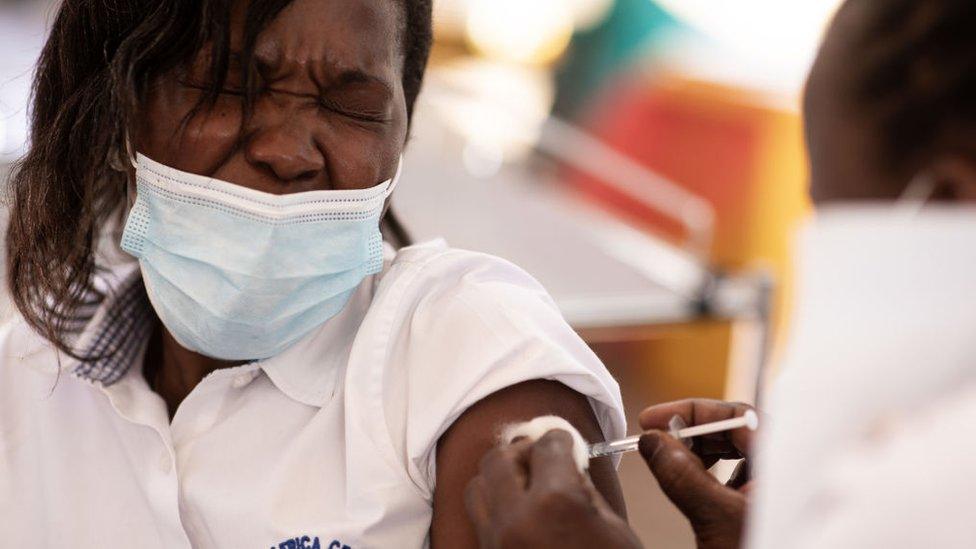
- Published24 June 2021
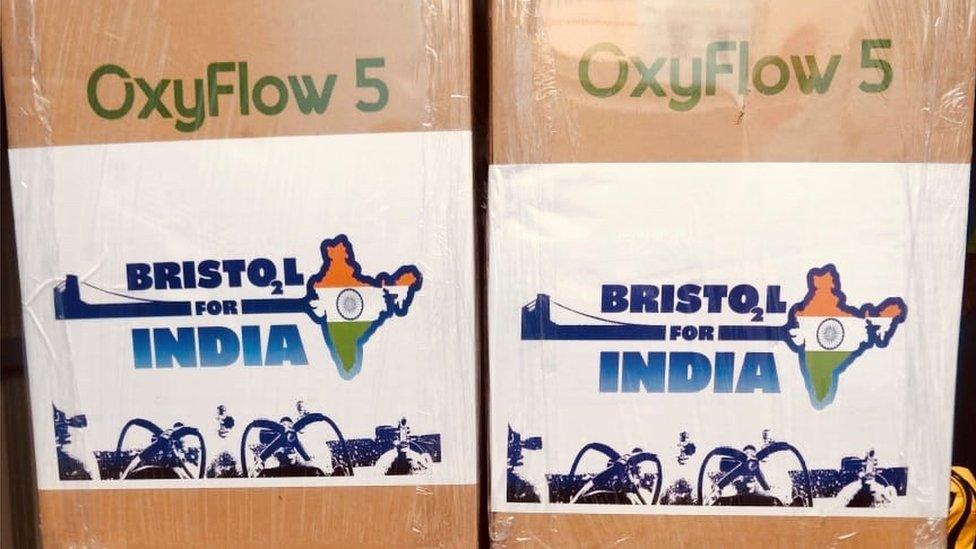
- Published7 May 2021
